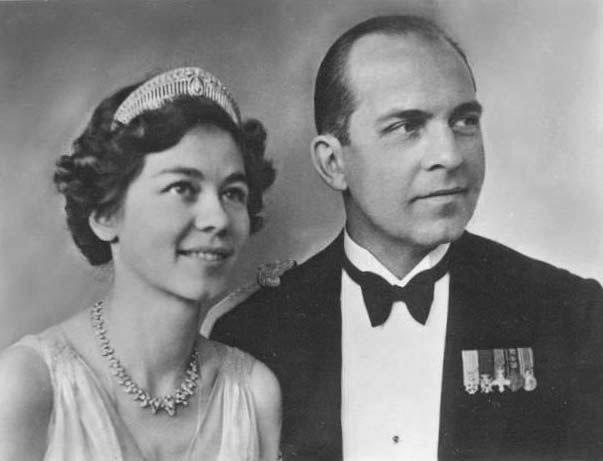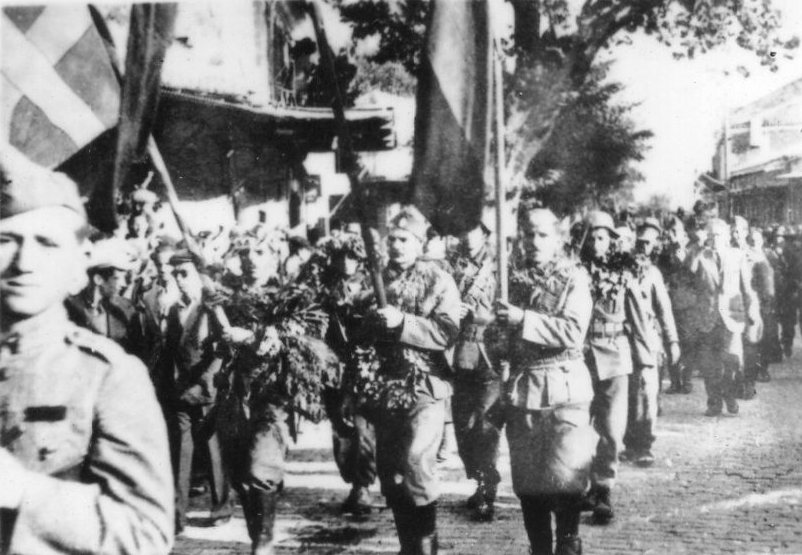|
Greek Legislative Election, 1964
Parliamentary elections were held in Greece on 16 February 1964.Dieter Nohlen & Philip Stöver (2010) ''Elections in Europe: A data handbook'', p830 They resulted in a clear victory for Georgios Papandreou and his Center Union (EK). Papandreou subsequently formed the 37th government since the end of World War II. Background The government led by Panagiotis Kanellopoulos of the National Radical Union (ERE) resigned on 25 September 1963, after which Papandreou formed an interim government on 28 September. As no party had a majority in the Hellenic Parliament, Papandreou's government initiated preparations for elections on 3 November. Although the Center Union emerged as the largest party, which allowed Papandreou to form a new government, it also soon resigned. King Paul accepted Papandreou's resignation on 31 December 1963, and Ioannis Paraskevopoulos formed an interim government to serve until the 1964 elections. The ERE had been weakened prior to the elections when Konstantin ... [...More Info...] [...Related Items...] OR: [Wikipedia] [Google] [Baidu] |
Hellenic Parliament
The Parliament of the Hellenes (), commonly known as the Hellenic Parliament (), is the Unicameralism, unicameral legislature of Greece, located in the Old Royal Palace, overlooking Syntagma Square in Athens. The parliament is the supreme democratic institution that represents the citizens through an elected body of Members of Parliament (MPs). It is a unicameral legislature of 300 members, elected for a four-year term. From 1844–1863 and from 1927–1935, the parliament was Bicameralism, bicameral with an upper house (the Greek Senate, Senate; ) and a lower house (the Chamber of Deputies; ). Several important Greek statesmen have served as the speaker of the Hellenic Parliament. History Semi-constitutional monarchy, 1843–1862 The first national parliament of the independent Greek state was established in 1843, after the 3 September 1843 Revolution, 3 September Revolution, which forced Otto of Greece, King Otto to grant a Greek Constitution of 1844, constitution. The con ... [...More Info...] [...Related Items...] OR: [Wikipedia] [Google] [Baidu] |
Konstantinos Karamanlis
Konstantinos G. Karamanlis (, ; 8 March 1907 – 23 April 1998) was a Greek statesman who was the four-time Prime Minister of Greece and two-term president of the Third Hellenic Republic. A towering figure of Greek politics, his political career spanned portions of seven decades, covering much of the latter half of the 20th century. Born near Serres in Macedonia, Karamanlis practiced law until his election to the Hellenic Parliament in 1936 as a member of the conservative People's Party. Rising through the ranks of Greek politics after World War II, Karamanlis became Minister of Labour in 1947, and in 1951 he was named Minister for Public Works in Alexandros Papagos's Greek Rally administration. He was appointed prime minister by King Paul of Greece after Papagos's death in 1955. During his first term, he applied a program of rapid industrialization, heavy investment on infrastructure and improvement on agricultural production, which led to the post-war Greek economic miracl ... [...More Info...] [...Related Items...] OR: [Wikipedia] [Google] [Baidu] |
Constantine II Of Greece
Constantine II (, ; 2 June 1940 – 10 January 2023) was the last King of Greece, reigning from 6 March 1964 until the abolition of the Greek monarchy on 1 June 1973. Constantine was born in Athens as the only son of Crown Prince Paul and Crown Princess Frederica of Greece. Being of Danish descent, he was also born as a prince of Denmark. As his family was forced into exile during the Second World War, he spent the first years of his childhood in Egypt and South Africa. He returned to Greece with his family in 1946 during the Greek Civil War. After Constantine's uncle, George II, died in 1947, Paul became the new king and Constantine the crown prince. As a young man, Constantine was a competitive sailor and Olympian, winning a gold medal in the 1960 Rome Olympics in the Dragon class along with Odysseus Eskitzoglou and George Zaimis in the yacht ''Nireus''. From 1964, he served on the International Olympic Committee. Constantine acceded as king following his father's d ... [...More Info...] [...Related Items...] OR: [Wikipedia] [Google] [Baidu] |
Iouliana
''Iouliana'' (, "July events"), also ''Apostasia'' (, "Apostasy") or the Royal Coup ( ''To Vasiliko Praxikopima''), are terms used to describe the political crisis in Greece centered on the resignation, on 15 July 1965, of Prime Minister Georgios Papandreou and subsequent appointment, by King Constantine II, of successive prime ministers from Papandreou's own party, the Centre Union, to replace him. Defectors from the Centre Union were branded by Papandreou's sympathizers as ''Apostates'' ("renegades"). The ''Apostasia'' heralded a prolonged period of political instability, which weakened the fragile post-civil war order, and ultimately led to the establishment of the military regime in April 1967. Background Rise of Centre Union On September 19, 1961, Prime Minister Konstantinos Karamanlis called a general election (the elections were already expected to happen that autumn). The night of the same day, various factions of Greece's liberal centrist political forces, known as t ... [...More Info...] [...Related Items...] OR: [Wikipedia] [Google] [Baidu] |
List Of Independents
The List of Independents () was a list that contested elections in Greece between 1946 and 1974. History The list contested the 1946 elections, the first after World War II. It received 1% of the vote and won two seats. The 1950 elections saw the list lose both seats as its vote share fell to 0.2%. Global Elections Database The list remained seatless after the 1951 elections, but won two seats in when it received 3.6% of the vote. It retained its two seat ... [...More Info...] [...Related Items...] OR: [Wikipedia] [Google] [Baidu] |
United Democratic Left
The United Democratic Left (, ΕΔΑ; ''Eniéa Dimokratikí Aristerá'', EDA) was a left-wing political party in Greece, active mostly before the Greek junta of 1967–1974. Foundation The party was founded in July 1951 by prominent center-left and leftist politicians, some of which were former members of ELAS. While initially ''EDA'' was meant to act as a substitute and political front of the banned Communist Party of Greece, it eventually acquired a voice of its own, rather pluralistic and moderate. This development was more clearly shown at the time of the 1968 split in the ranks of Communist Party of Greece, with almost all former members of ''EDA'' joining the faction with Euro-communist, moderate tendencies. History ''EDA'' participated in all the elections in Greece from 1952 until 1964. In the 1958 elections it managed to become the leading party of the opposition, an achievement all the more surprising in view of the recent end of the Greek civil war and the consequen ... [...More Info...] [...Related Items...] OR: [Wikipedia] [Google] [Baidu] |
Centre Union
The Centre Union () was a major centrist political party in Greece, created in 1961 by Georgios Papandreou.Clogg, 1987, pp. 39–40 History The Centre Union was a political party in Greece in the 1960s which held office from 1963 to 1965 and was nominally in power from 1965 to 1967. The party was centrist, though elements of the far-right and the left also joined. The party fractured following its leader Georgios Papandreou's resignation after a disagreement with King Constantine II who clashed with Papandreou on how to handle the armed forces. Papandreou was succeeded by several shaky governments which relied on the votes of the opposition and defectors from the Centre Union. The turmoil surrounding Papandreou's resignation became known as the 'Apostasy' which led directly to the Greek military junta of 1967-1974.Gallant, 2015, pp. 273–274 Establishment and goals The Centre Union was founded in September 1961, six weeks before the elections that same year. The forces of the ... [...More Info...] [...Related Items...] OR: [Wikipedia] [Google] [Baidu] |
Greek Legislative Election, 1964
Parliamentary elections were held in Greece on 16 February 1964.Dieter Nohlen & Philip Stöver (2010) ''Elections in Europe: A data handbook'', p830 They resulted in a clear victory for Georgios Papandreou and his Center Union (EK). Papandreou subsequently formed the 37th government since the end of World War II. Background The government led by Panagiotis Kanellopoulos of the National Radical Union (ERE) resigned on 25 September 1963, after which Papandreou formed an interim government on 28 September. As no party had a majority in the Hellenic Parliament, Papandreou's government initiated preparations for elections on 3 November. Although the Center Union emerged as the largest party, which allowed Papandreou to form a new government, it also soon resigned. King Paul accepted Papandreou's resignation on 31 December 1963, and Ioannis Paraskevopoulos formed an interim government to serve until the 1964 elections. The ERE had been weakened prior to the elections when Konstantin ... [...More Info...] [...Related Items...] OR: [Wikipedia] [Google] [Baidu] |
Andreas Papandreou
Andreas Georgiou Papandreou (, ; 5 February 1919 – 23 June 1996) was a Greek academic and economist who founded the Panhellenic Socialist Movement (PASOK) and served three terms as Prime minister of Greece, prime minister of Third Hellenic Republic, Greece. Papandreou was born in 1919, the son of Georgios Papandreou. In 1938, in his early 20s, Papandreou left Greece for United States to escape the 4th of August Regime, Metaxas' dictatorship (1936–1941) and became a prominent academic. Papandreou returned to Greece in 1959 after years of resisting his father's entreaties. His father, Georgios Papandreou, who was now Prime Minister of Greece, wanted him to return so that he could prepare him as his successor. However, Papandreou's rapid ascension, together with his uncompromising radical rhetoric only amplified Greece's post-Greek civil war, civil war political instability, which created the conditions for a group of colonels to stage a Coup d'état, coup d'etat and rule Greece ... [...More Info...] [...Related Items...] OR: [Wikipedia] [Google] [Baidu] |
Communist Party Of Greece
The Communist Party of Greece (, ΚΚΕ; ''Kommounistikó Kómma Elládas'', KKE) is a Marxist–Leninist political party in Greece. It was founded in 1918 as the Socialist Workers' Party of Greece (SEKE) and adopted its current name in November 1924. It is the oldest political party in modern Greek politics. The party was banned in 1936, but played a significant role in the Greek resistance and the Greek Civil War, and its membership peaked in the mid-1940s. Legalization of the KKE was restored following the fall of the Greek Junta (χούντα) in 1974. The party has achieved appointing MPs in all elections since its restoration in 1974, and took part in a coalition government in 1989 when it got more than 13% of the vote. The KKE is a member of the International Meeting of Communist and Workers' Parties (IMCWP) and the European Communist Action (ECA). History Foundation The October Revolution of the Bolsheviks in Russia in 1917 gave impetus for the foundatio ... [...More Info...] [...Related Items...] OR: [Wikipedia] [Google] [Baidu] |
National Liberation Front (Greece)
The National Liberation Front (, ''Ethnikó Apeleftherotikó Métopo'', EAM) was an alliance of various political parties and organizations which fought to liberate Greece from Axis Occupation. It was the main movement of the Greek Resistance during the occupation of Greece. Its main driving force was the Communist Party of Greece (KKE), but its membership throughout the occupation included several other leftist and republican groups. ΕΑΜ became the first true mass social movement in modern Greek history. Its military wing, the Greek People's Liberation Army (ELAS), quickly grew into the largest armed guerrilla force in the country, and the only one with nationwide presence. At the same time, from late 1943 onwards, the political enmity between ΕΑΜ and rival resistance groups from the centre and right evolved into a virtual civil war, while its relationship with the British and the British-backed Greek government in exile was characterized by mutual mistrust, leading ... [...More Info...] [...Related Items...] OR: [Wikipedia] [Google] [Baidu] |




